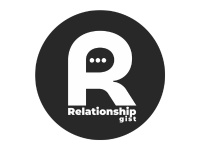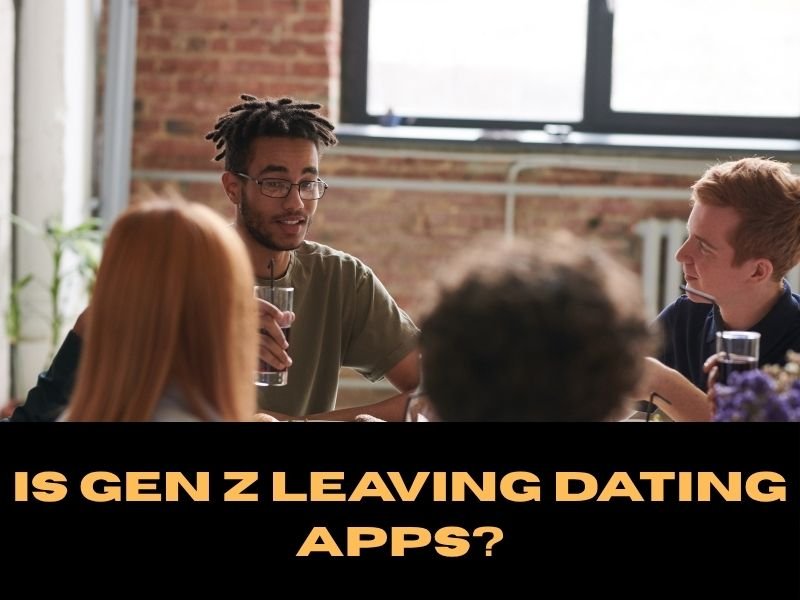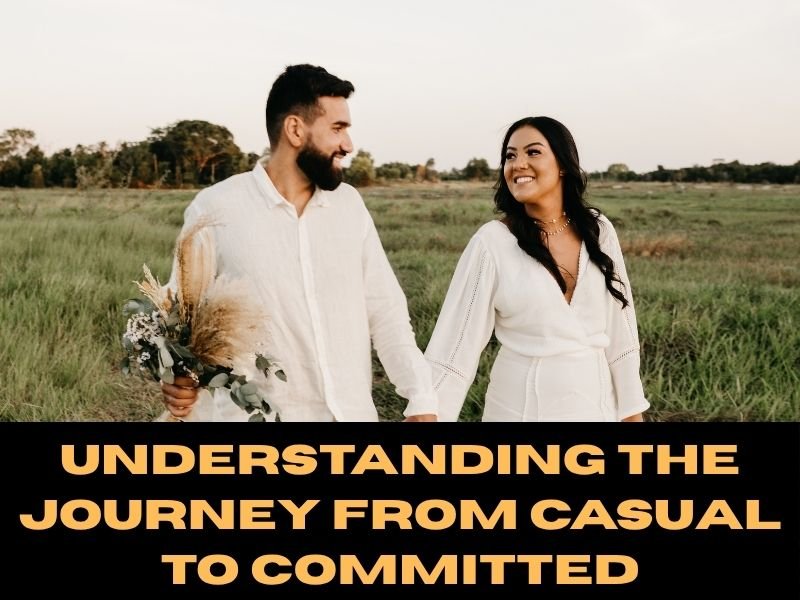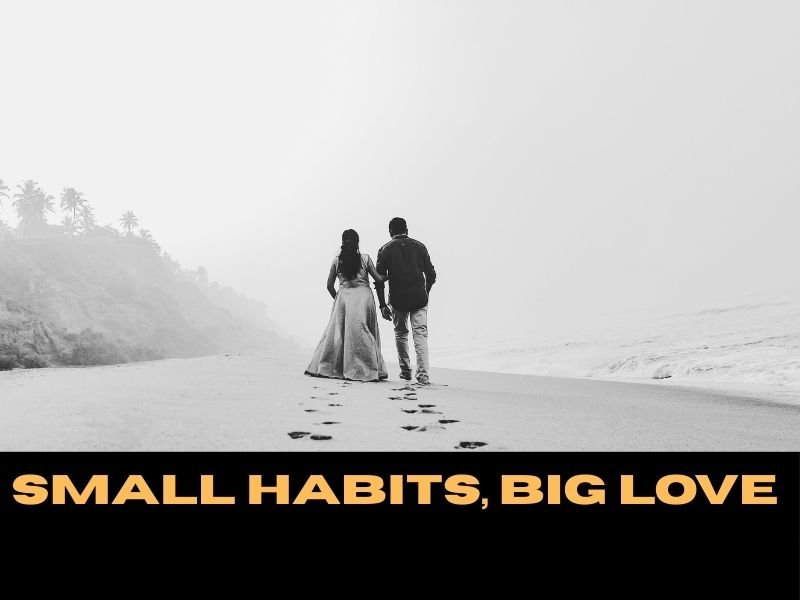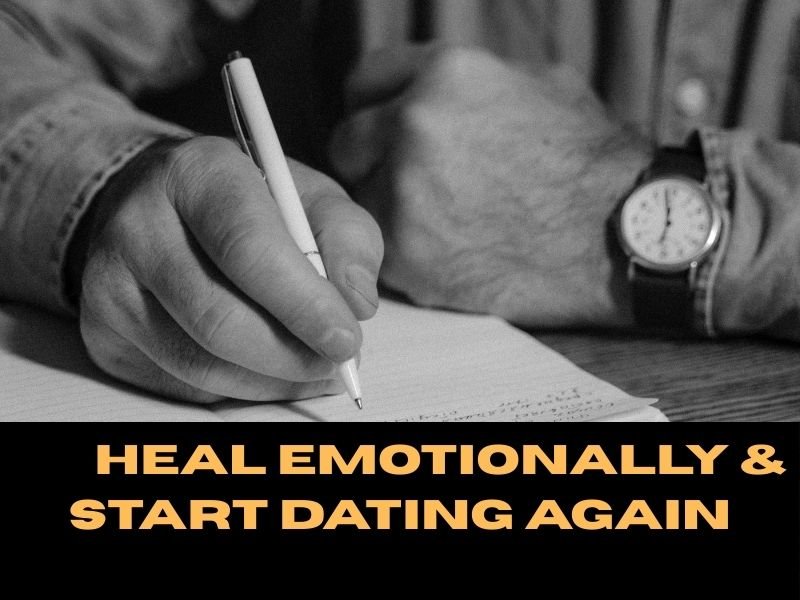Dating apps became very popular in the early 2010s. They promised instant access to partners with a simple swipe of the finger. Now the big question remains: is Gen Z leaving dating apps? It was revolutionary for millennials. For Gen Z, digital natives born in the late 1990s to early 2010s, it was second nature. In recent years, however, an unexpected trend has emerged. Many members of Gen Z have quietly deleted their profiles and are seeking love outside the algorithm.
This shift can be attributed to several factors, including “swipe-fatigue” due to endless profiles, frustration over shallow interactions, mental health concerns, and a desire for offline, genuine connections. Informally? Imagine scrolling through Netflix for hours and never finding the movie you want to see. Many young people feel the same way about dating apps – too many options, not enough satisfaction.
Swipe Fatigue: Why Endless Options Are Wearing Gen Z Out
The idea of being able to meet dozens of potential dates without having to leave your couch was exciting when dating apps first became popular. For many Gen Zers, the initial excitement has turned into swipe fatigue. Burnout is the result of scrolling through hundreds and thousands of profiles, sending endless opening messages, or navigating dead-end conversations. A growing number of Gen Z users are feeling mentally exhausted by the dating process. Some even say that it makes it feel like a chore rather than an adventure.
Imagine it as a buffet where you can eat whatever you want. The variety at first is exciting. You pile your plate with everything you can see. After a while, the options become diluted, the flavors are no longer as appealing, and you want something simpler. Many dating apps have the same problem: too many options, but not enough meaningful connections. Users feel fulfilled, but unsatisfied.
The ROI Isn’t There: Why Gen Z Prefers Quality Over Quantity

Gen Z dating is not about collecting matches, but about making genuine connections. Dating apps are always perceived by many young people as a waste of time and energy. Spending hours on the perfect profile, uploading flattering pictures, and swiping profiles can lead to a conversation that lasts only a few days. This constant cycle of effort with no meaningful reward is driving many people away from app-based online dating.
It is a bit like paying a monthly membership to a gym but not seeing any results, because the machines are broken and classes are always packed. You may eventually wonder, “Why am I even paying for it?” Gen Z also questions why they should continue to swipe if their experience does not meet their expectations of authenticity, compatibility, and long-term prospects.
Exiting the Swiping Rat Race: The Rise of IRL Dating

Gen Z is choosing to meet face-to-face as the novelty of online matchmaking begins to wear off. It is not just nostalgia for the pre-app age; this is a very deliberate shift towards environments where chemistry can develop naturally. Speed-dating, social mixers, and hobby-based events, as well as community volunteering, are all experiencing a revival. Apps struggle to match these settings: the organic interaction, body-language cues, and a sense of immediate compatibility.
This shift is a reflection of the pattern of courtship that existed before technology became prevalent. In terms of sociology, face-to-face interactions provide a multi-sensory experience, such as tone, eye contact, and spontaneous humor, that digital exchanges can’t match. In the same way that dance halls in the early 20th century provided a socially accepted space to meet potential partners, singles events and local community gatherings today fulfill this role for a technology-averse generation looking for authenticity.
Mental Health Matters: Why Many Are Deleting the Apps
Gen Z users’ decision to stop using dating apps isn’t just a change in preference. It is also a question of their psychological health. According to studies, prolonged exposure to dating apps can increase anxiety, lower self-esteem, and promote a transactional approach towards relationships. The constant cycle of judgment, being liked or unmatched, ghosted, etc., creates a climate where self-worth becomes tethered to external validation. This can eventually lead to emotional exhaustion and a reduced desire to pursue romantic relationships.
This is consistent with social psychology findings regarding “evaluation anxiety” and “comparison-stress.” When people are subjected repeatedly to rapid, appearance-based evaluations, it can trigger chronic stress reactions similar to those seen in competitive performance settings. Dating apps have, in essence, unintentionally transformed courtship into an arena of high-stakes performance, which has long-term effects on mental health and interpersonal relationships.
App Evolution: Can AI and In-Person Events Save Them?
Dating apps haven’t given up yet. Many dating apps are reinventing themselves in order to win back Gen Z. Platforms such as Hinge offer in-person mixers and hobby-based events to encourage people to engage in real conversations. Some platforms are leveraging AI, offering smart profile prompts and photo curation tools to break the ice. The goal? The goal is to make dating less of a chore and more of an adventure.
You can compare it to your favorite fast food chain, adding a cozy dining experience with a personal chef that knows your tastes. You can still get burgers, but you’ll have a more satisfying experience and a unique atmosphere. While swipes may bring people together in the dating app, it is real-life interactions and maybe some AI magic that keep them engaged.
The Role of Exclusivity and Niche Communities
The rise of niche and exclusive platforms is another reason why Gen Z has stepped away from mainstream dating applications. Raya and other apps that require strict vetting or invitations offer a curated audience of users, resulting in better matches. Interest-based communities, whether for runners, book lovers, foodies, or gamers, are becoming informal spaces to matchmake. These environments reduce the number of choices and increase the chances of making deeper connections by reducing the number of people.
It is like swapping a huge, noisy nightclub with a small, intimate party where everyone has something in common. There’s less shouting over the music, and more meaningful conversations–making it easier to actually connect.
The Influence of Economic and Social Trends on Dating Habits
Gen Z’s dating style is also influenced by economic and social reality. Many young adults struggle with high living expenses, student debt, and uncertain career paths. This can lead to the feeling that a serious relationship is secondary to personal development and financial stability. When budgets are tight, spending money on dating apps or frequent outings may seem impractical.
Gen Z is growing up in a time when people are more aware of boundaries, consent, and emotional safety. This has changed how and where they choose to meet people they might want to date. There is a bigger focus on shared values, safe places to meet, and community support. These things are easier to check in person or through trusted networks than on anonymous dating sites.
The Pandemic’s Lingering Effect on Gen Z Dating

COVID-19 changed not only how we work and study, but also how a lot of Gen Zers date. Dating apps were one of the few ways to meet new people during lockdowns. Virtual coffee dates and Netflix watch parties were common. But once the rules were relaxed, many young people realized they were sick of looking at faces on screens. They wanted the real thing: laughing together over dinner, going for walks in the park on a whim, and the kind of energy you can’t feel over a video call.
It is like eating instant noodles for months because you could not get to a restaurant. At first, it was easy to do and made me feel better. But when the world opened up again, you wanted a real, home-cooked meal. Gen Z is giving up their “instant” digital dating experiences for deeper, real-life connections that make them feel alive.
How Technology Fatigue Is Reshaping Romantic Expectations
Gen Z’s relationship with technology as a whole is changing in small ways, not just with dating apps. Many people are now experiencing what experts call “digital fatigue,” which means they don’t want to interact with screens as much as they used to. This is because they grew up with constant connectivity. In the dating world, this looks like wanting to build relationships more slowly and intentionally, without being guided by algorithms or push notifications.
This change shows that people are rethinking mediated intimacy, which is when relationships are formed and kept up mostly through technology. As Gen Z learns more about the mental health effects of too much screen time, their romantic expectations are becoming more focused on being present, paying attention, and having deep conversations. This change is affecting not only where they meet potential partners but also how they think about compatibility and long-term potential.
Conclusion
Gen Z is slowly leaving dating apps, but this does not mean they don’t like or appreciate technology. They want to connect in more meaningful and intentional ways. This change in generations is happening because people are tired of swiping all the time, worried about their mental health, facing economic realities, and wanting to interact with people in person. A lot of people are finding that love and connection feel deeper when they happen naturally, like through shared experiences, common interests, and places where chemistry isn’t limited to a profile picture and a bio.
Dating apps need to change from the quick-swipe model to something that combines the ease of digital with real-life opportunities. Gen Z seems happy to close the apps, put their phones down, and see who they might meet in the real world until then. After all, the best matches happen when you’re not looking for them.
FAQ
Why is Gen Z leaving dating apps?
Many Gen Z users are leaving dating apps due to swipe fatigue, shallow interactions, and growing concerns about mental health. They are seeking authentic, in-person connections that feel more meaningful than algorithm-driven matches.
What does “swipe fatigue” mean?
Swipe fatigue refers to the emotional exhaustion caused by endless scrolling through dating profiles without finding real connections. It’s the modern version of burnout — too many options, but not enough satisfaction.
Are Gen Z completely quitting online dating?
Not entirely. While many are deleting mainstream apps, others are shifting toward niche or exclusive platforms that focus on shared interests, community, or real-life events rather than superficial swiping.
How have mental health concerns influenced Gen Z’s dating habits?
Constant comparison, ghosting, and rejection on dating apps can lower self-esteem and increase anxiety. As a result, many Gen Zers are choosing offline ways to meet people to protect their mental well-being.
What alternatives are Gen Z using instead of dating apps?
Gen Z is turning to in-person events, social meetups, volunteering, and interest-based communities like book clubs or sports groups to meet potential partners naturally.
How is technology fatigue impacting Gen Z’s love life?
After growing up online, many Gen Zers now feel digitally drained. They crave slower, intentional relationships built on genuine communication rather than likes and swipes.
Are dating apps changing to attract Gen Z again?
Yes. Some apps like Hinge and Bumble are adding AI tools, in-person events, and better profile prompts to make dating feel more organic and less transactional.
How did the pandemic affect Gen Z dating habits?
COVID-19 lockdowns made online dating a necessity. But once restrictions eased, many young people realized they wanted real-world intimacy — shared laughter, touch, and spontaneous experiences that apps couldn’t provide.
What does the future of Gen Z dating look like?
The future of Gen Z dating blends digital convenience with real-world depth. Expect more focus on mental health, community-based connections, and hybrid experiences that balance technology and authenticity.
